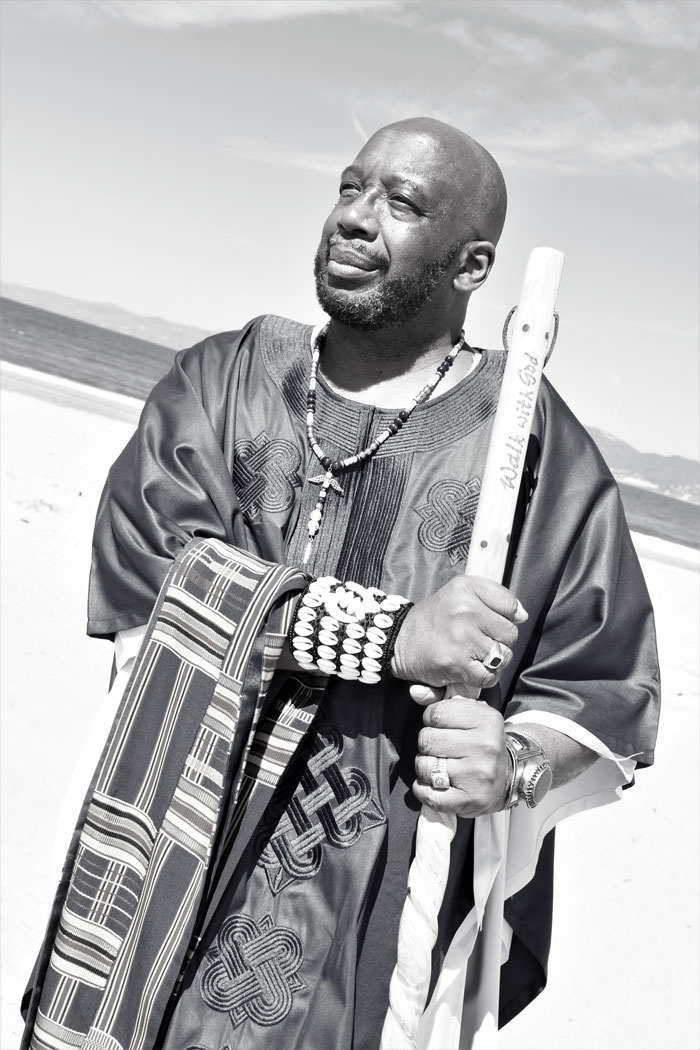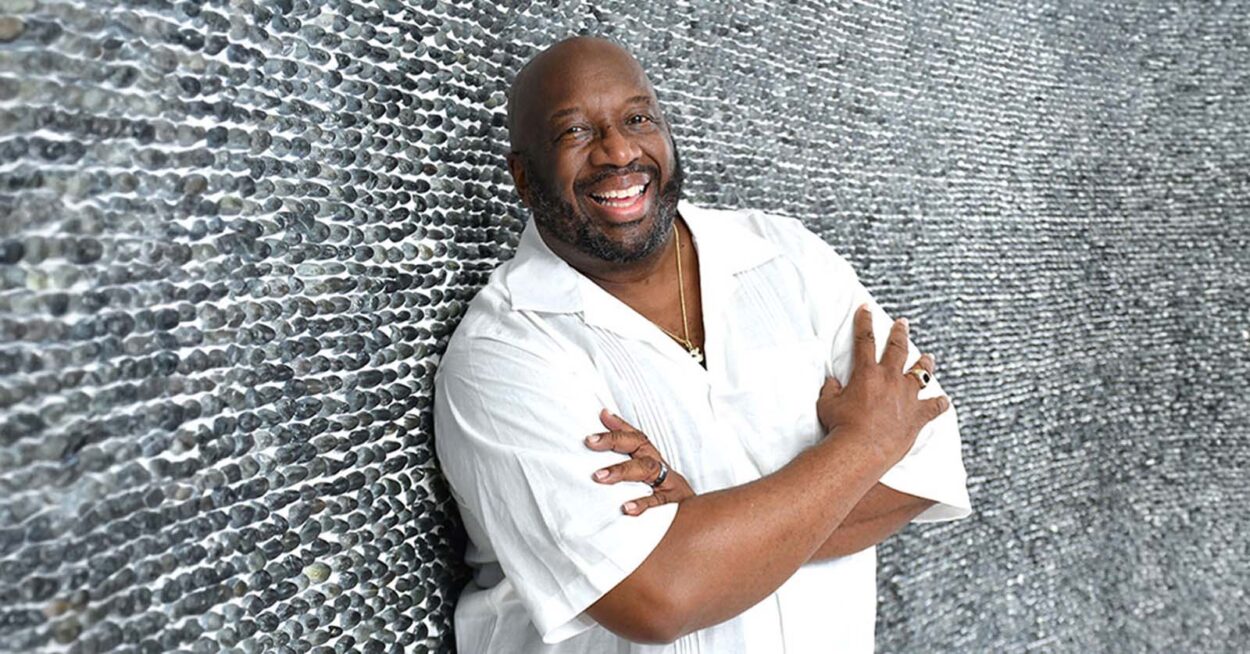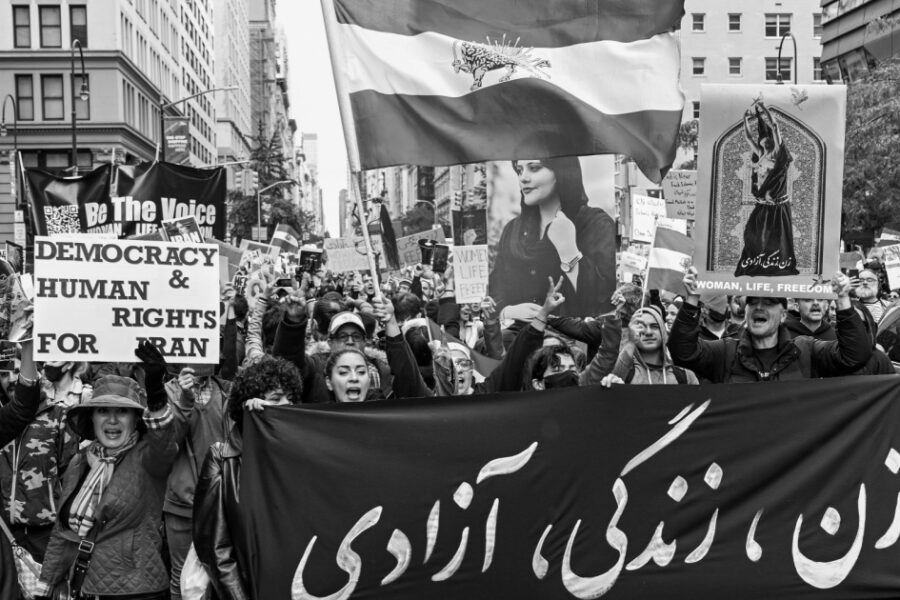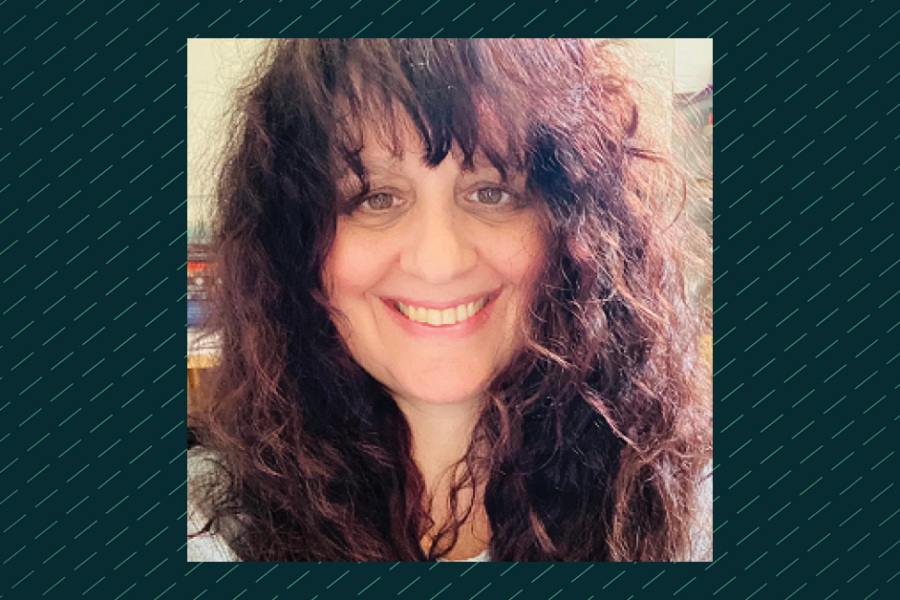Russell Thornhill has spent decades of his life lifting up other people and their stories—through his ministry, through his teaching, through his scholarship, and through his platform as a key member of his community. But for a long time, he resisted centering himself and his personal experiences. Today, though, leaning into the idea that stories are how communities situate themselves within history, he’s finally telling his own story. As he says, “I understand the importance of sharing your story, your journey.”
Thornhill is an alum of Antioch University’s BA program as well as its MA in Organizational Management—and for over a decade, he has served as a faculty member both in the undergraduate programs on the Los Angeles campus and in the Bridge Program, Antioch’s innovative, zero-tuition program for students who have otherwise been excluded from higher education. Within Antioch, he is acknowledged as a great teacher, colleague, and leader.
At the same time, Thornhill is deeply engaged beyond Antioch’s walls. He serves as a co-pastor at the Unity Fellowship of Christ Church Los Angeles. Thornhill graduated from the Claremont School of Theology, class of 2018, with an MA in Religious Studies, and last year he received that institution’s Distinguished Alumna/us Award.
For Thornhill, though, his story is more than a series of august degrees and distinguished awards. He is an activist, changing higher education and spirituality by redefining who these spaces include.
Finding His Own Path
Thornhill was born in 1954, in the Bronx, New York, to Oscar and Connie Thornhill, and he spent the first decade of his life living in New York City. His street address was 748, and that’s the affectionate name his family had given to the three-story apartment building he grew up in. His paternal grandfather had bought the building before Thornhill was born, and he and Thornhill’s grandmother lived on the first floor. Thornhill’s aunt’s family lived on the second, and Thornhill’s immediate family had the third-floor apartment—until they outgrew it about a decade after his birth.
It was a vibrant setting to grow up in. “My grandfather, who was from Guyana, and my grandmother, from Barbados, were big on family and what it meant to hold family. And so my whole foundation for family came from that upbringing.” 748 was full of family stories and photographs, piano and calypso music playing throughout the house, and an expansive backyard that was regularly filled with friends.
When Thornhill was thirteen, he moved for the summer to Middletown, Connecticut, where he lived with his maternal grandmother and earned summer money working in the tobacco fields. He found himself drawn to the slower pace of life he found there, and he loved spending time with his grandmother, who was widowed and living alone. So he asked his parents, Connie and Oscar if he could finish high school in Connecticut. They agreed.
This confidence to take risks and leave what was familiar—even as a thirteen-year-old—is something that Thornhill attributes to his mother, Connie. She herself had grown up in Cromwell, Connecticut, in the 1930s and 1940s, and she had made the opposite journey to New York City in order to pursue her dream of becoming a nurse. At that time, the Lincoln School for Nurses was one of just a few options for Black women to enter that career path. It was after taking this leap of faith that she went out dancing at the iconic Savoy Ballroom in Harlem and happened to meet a returning World War II veteran—Oscar Thornhill. They married a few years later and soon were raising a family in the Bronx.
For Thornhill, his mother’s hard-won lessons in bravery have been a guide his whole life. “She was always encouraging because she knew what it meant,” he explains. “She knew what it had meant to be held back. She knew what it had meant to not have an opportunity when you were clearly qualified to have an opportunity. I learned that from her, and at each step of the way, I made a decision.”
Thornhill’s decisions took him from New York to Connecticut—and then onward to living with over two hundred families on three continents. That’s what happened after he began traveling with the international casts of the nonprofit organization Up With People in 1972. He was eighteen years old, and he joined Up With People’s international touring cast of young adults from all around the world who staged performances, promoting positive change through song and dance. This experience expanded his global perspective, helping him form a larger view of the world.
At the end of his four-year tour, after traveling through all fifty states, Canada, Mexico, England, Spain, Germany, Belgium, and Morocco in northern Africa, Thornhill decided to move to California, and he laid down new roots. After twenty-five years of brave relocation and travel, for the last four decades, he has steadily lived, worked, and raised a family in California. Thornhill proudly fathers a blended family with his four adult children, eleven grandchildren, five great-grandchildren, and a host of mentees nationwide.
Forging a New Community

On January 13, 1990, Thornhill, who at that point had been living in California for fourteen years, walked through the doors of the Unity Fellowship of Christ Church in South Los Angeles. He had read about the denomination’s Archbishop Carl Bean, who founded the church, in a magazine. He was intrigued by this Archbishop who proclaimed: “God is love, and love is for everyone.”
Thornhill already had experiences in religious settings. His New York City childhood church had helped form his understanding of community organizing. But here, he found something far beyond that. Archbishop Carl Bean introduced him to a theology of critical biblical engagement and biblical resistance. The Archbishop taught Black LGBTQI Liberation Theology.
“While I embrace biblical teaching,” explains Thornhill, “I embrace it from a liberated perspective. I don’t accept the Bible as the inerrant word of God. There’s meaning behind words. There’s meaning behind history. There’s meaning behind culture. So I believe in critical biblical engagement. I believe in biblical resistance. If it is not right, then don’t accept it just because it is written there. You gotta be questioning and challenging it, asking, ‘What does it mean?’”
Questioning and resisting is how Thornhill learned that the Bible, which has been weaponized against many communities and identities, could also be a liberatory text. He remembers Bean teaching about the Bible. Bean said, “It’s the very tool weaponized against us that we study and learn and understand for ourselves, so we can use it to free people.”
Bean became a spiritual leader as well as a personal mentor to Thornhill during a period when he was discovering what it meant to be a Gay man. Thornhill says, “As a man who identifies as a Black, Gay father, coming out in the 90s, a spiritual home was very important to me.” The supportive community that he found at the Unity Fellowship of Christ Church, where he is now a retired pastor, was also a community engaged in social activism.
The Unity Fellowship of Christ Church was founded in 1982 at the crossroads of Black Liberation, LGBTQ+ Rights, and the HIV/AIDS epidemic. Bean was the church’s founder, and he played an important role as a public figure who gave voice to Black LGBTQ+ Liberation Theology. Bean built a spiritual home for people who identified across a range of identities and sexual expressions during a period when, as Thornhill puts it, “There were no churches or organizations in the Black community that addressed the AIDS pandemic from a spiritual lens.”
Bean went on to found the Minority AIDS Project, which describes itself as the “first community-based HIV/AIDS organization established and managed by people of color in the United States.” Thornhill’s involvement with the organization began in the ‘90s when he volunteered to provide support and care to men, some of whom were his closest friends who were dying from AIDS. Though he did not initially think of himself as a social activist, he gradually began to see that the work he was engaged in was activism. Today, Thornhill himself serves as CEO of Minority AIDS Project, appointed in 2018 by the founder, his mentor Archbishop Carl Bean.
A Steward of Liberatory Thinking at Antioch
Expansive contemplation has come to shape how Thornhill thinks about many things: family can be bigger than biology, spirituality goes beyond biblical texts, and education should extend past privilege and open its doors to people excluded by existing systems.
In 2010, when Thornhill was an undergraduate student at Antioch, he began work as a teaching assistant in the Bridge Program. The Bridge Program, started by David Tripp and Shari Foos in 1999, provides free university-level education for students who otherwise may not have been afforded the opportunity of higher education. “Bridge is what social justice looks like,” Thornhill said, explaining that the Bridge Program, which he now co-directs with Kathryn Pope, works to remove some of the disenfranchising economic and material barriers that prevent people living in systems of injustice from entering the university setting.
Thornhill fell in love with the Bridge Program because, he says, “It is really about opening doors and opportunities.” Bridge promotes a model of education that embraces students where they are, and it is grounded in the same self-inquiry and critical thinking that Thornhill strives to cultivate in his own undergraduate classes.
Thornhill teaches his students to engage history through critical thought processes that liberate them rather than tethering them to archaic ideas. He believes that it is by way of practice and action that one learns how to make old ideas contemporary. When students enroll in his Nonprofit Management class, they choose a nonprofit they want to work with, and the theory they learn in the classroom is paralleled by its application in a work setting.
In his teaching statement, Thornhill quotes Rev. Dr. Martin Luther King, Jr., who said, “The function of education is to teach one to think intensively and to think critically. Intelligence plus character—that is the goal of true education.” Thornhill designs his classes specifically to foster this sort of learning.
To this end, one of Thornhill’s main tasks as a faculty member is to build co-learning spaces where students feel that everything they bring into the classroom setting is relevant and important to their learning journey. “When we’re thinking about community,” he says, “all of what you bring has to be seen and deemed as valuable.” Leading with this belief, Thornhill acknowledges his students as more than students. Many students have responsibilities that do not end when they enter the classroom. He endeavors to help them feel embraced—however, they come in whatever roles they play.
What drew Thornhill to Antioch is what continues to keep him there. “At Antioch, he says, “I am engaged with a group of academic activists who are committed to bringing a sense of liberation through academia and community.” It does not cease to surprise and encourage him that his colleagues meet him in this brave work—as he describes it, they are always willing to “reach across any and all aisles and create space for challenging discourse that everyone can engage in.”




